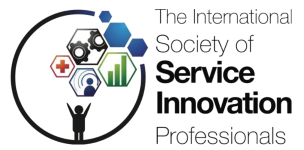In a short period of time, the COVID-19 crisis has changed the way we work globally. Some of these changes may be here to stay. At ISSIP, we believe our collective global experiences and knowledge from this crisis can impact future decisions by industry leaders, educational institution administrators, and policymakers to promote innovative ways of work and learning not just as a short term response to the crisis, but long term best practices.
Below is more about the Working Group Speaker Series.
If you would like to join our community, please sign up here.
The Working Group Speaker Series
Speaker: Sunil Kripalani, Board Member, ISSIP (Sr. VP/Chief Digital Officer, Optum; VP Technology, Cisco)
Date: August 5, 2020, 12:30-1:00, US Pacific Time
Abstract: As companies are adjusting to a “new normal” in a COVID world, innovation is happening at an accelerating pace. Some of this is obviously driven by pure necessity, particularly at the outset however as we begin to chart our future, companies of all sizes across many industries are finding ways of creating new value – which will help them and their respective industries transform and unlock tremendous future growth. In this session, we will talk about some of the trends and hopefully challenge our collective expertise to identify new examples which we can help power into the future.

Speaker: Yassi Moghaddam, Executive Director, ISSIP
Date: July 8, 2020, 12:30-1:00, US Pacific Time
Title: Impact of remote working on work practices (Click here to watch the recording)
Abstract: Almost overnight, The COVID-19 pandemic changed the way millions of people work in many industries from mainly working physically on-site to working remotely. Many believe that remote working will be here to stay long after the pandemic is over. In this interactive session, participants will be asked to engage in discussing whether remote working will be the “new normal?” Why or why not? What are some aspects of work that are more challenging when working remotely? How can those challenges be addressed (technology, process, skills, culture, etc.)?

Speaker: Jim Spohrer, Director Cognetivie Open Tech AI, IBM
Date: June 24, 2020, 12:30-1:00 US Pacific Time
Abstract: As AI and robotics come to the service world, including retail, hospitality, education, healthcare, and government, some jobs will go away, some new jobs will be created, and the income required for a family to thrive might be lessened. In this creative session participants will be asked to engage in discussing three scenarios below – and the wicked problem of the bespoke impact on livelihood and jobs, which is creating uncertainty and concerns. The groups will then report back on which scenarios they find more desirable.
1) Robots Rule Retail? Taking away jobs: https://www.forbes.com/sites/blakemorgan/2020/05/13/the-3-best-in-store-robots-and-why-they-work/#414ae0ca37b2, Employers prefer to deploy robots rather than people for routine jobs in retail, hospitality, travel, education, healthcare, government, manufacturing, farming, and then all industries.
2) Telepresence Robot World? Adding more jobs: https://www.zdnet.com/article/best-telepresence-robots/, show up when needed and where needed to help in situations of various skill levels – more job opportunities. Robots reduce the need for stable identity of service provider, and thus increase the number of job roles that are cost effective for entrepreneurs to provide. Increase the staff I can afford to hire for a task. Better matching people to task.
3) Robots at Home? Reduce the need to have a job: https://home-automations.net/top-10-personal-robots-2020/. Don’t need to pay for gardner, chef, repairs, etc. – what if they barter with neighbor robots? Robots lower the cost of living, lower need for high-pay jobs.
====
In the news….
Retail– How lockdown is changing shopping for good
https://www.technologyreview.com/2020/05/25/1002168/retail-robots-save-local-store-business-lockdown-pandemic-coronavirus-economic-crisis/
https://medium.com/@jgwoodland/five-ways-in-which-artificial-intelligence-is-accelerating-the-development-of-new-medicines-5a1d31c2dfbb
Finance– Millennials Prefer Robot Bankers to Humans, Nordic Data Show
https://www.bloomberg.com/news/articles/2020-05-24/banker-bots-rake-in-nordic-wealth-business-and-reshape-finance
Customer Service – Hello and welcome: robot waiters to the rescue amid virus
https://www.washingtonpost.com/lifestyle/food/hello-and-welcome-robot-waiters-to-the-rescue-amid-virus/2020/05/29/59de1e06-a175-11ea-be06-af5514ee0385_story.html
Technology– Covid-19 Makes the Case for More Meatpacking Robots
https://www.wired.com/story/covid-19-makes-the-case-for-more-meatpacking-robots/
Who is an expert? A service research scholar who is studying Service Robots is Jochen Wirtz
https://twitter.com/JochenWirtz/status/1204641608320184321
https://www.emerald.com/insight/content/doi/10.1108/JOSM-04-2018-0119/full/html
https://scholar.google.com/citations?user=-_9L9P0AAAAJ&hl=en

Speaker: Nagendra Kumar, Principal Engineer, Cisco Systems
Date: June 10, 2020, 12:30-1:00 US Pacific Time
Abstract: “In recent months, COVID19 and the resulting escalation made the human race to question and debate our readiness and the prowess to manage such pandemic situations. We are reacting and maneuvering in an attempt to reduce the impact of this monster on our life as well as the economy. To do so, the human race is leveraging our cognitive flexibility and adapting to the new social and economic strategic norms such as “Social Distancing” and “Remote working”. Empirically, work from home was not considered as a best work practice due to the current herding behavior and it took COVID19 to concede the community. While “work from home” is now becoming an essential practice to survive the economic downfall, there are still some ambiguities in accepting and adhering to this new norm. In this presentation, Nagendra Kumar will discuss why working from home is not as arduous as it sounds and further discusses some of the common yet efficient techniques to make this task facile and efficient.”

Speaker: Nathan Tymann, Director HR, Cross Blue Shield of North Carolina
Date: May 27, 2020, 12:00-1:00 US Pacific Time
Abstract: “Blue Cross NC has been serving its members well for more than 80 years, but strategically pivoted to change the healthcare system in North Carolina by partnering with providers to offer value-based care. The challenge to transform its primary business model was made even more challenging by unforeseen disruptions, including the COVID-19 virus. Learn about Blue Cross NC’s recent evolution and reaction to COVID-19 which includes an investment in analytics, A.I., and strategic workforce planning.”

Speaker: Enrique Castro-Leon, Intel
Date: May 13, 2020, 12:00-1:00 US Pacific Time
Topic: “Business agility and business continuity through modular, reconfigurable service architectures” (click here to watch the recording)
Abstract: “Cloud computing is intrinsically service-oriented, providing technology ingredients to realize capabilities and efficiency envisioned under Service Science and the vision of Service-Oriented Architectures, or SOAs, to the extent that completely transformed the IT industry in less than 10 years since its inception around 2007. The acceptance of cloud computing took place, not because the novel technologies it brought, but because through service practices, it enabled adopters to take advantage of resource pools to reach their business goals at a fraction of the time and infrastructure cost it otherwise would have taken under traditional methods. We will cover a large scale engineering process transformation case study along with the applicability of the approach to healthcare research.”






